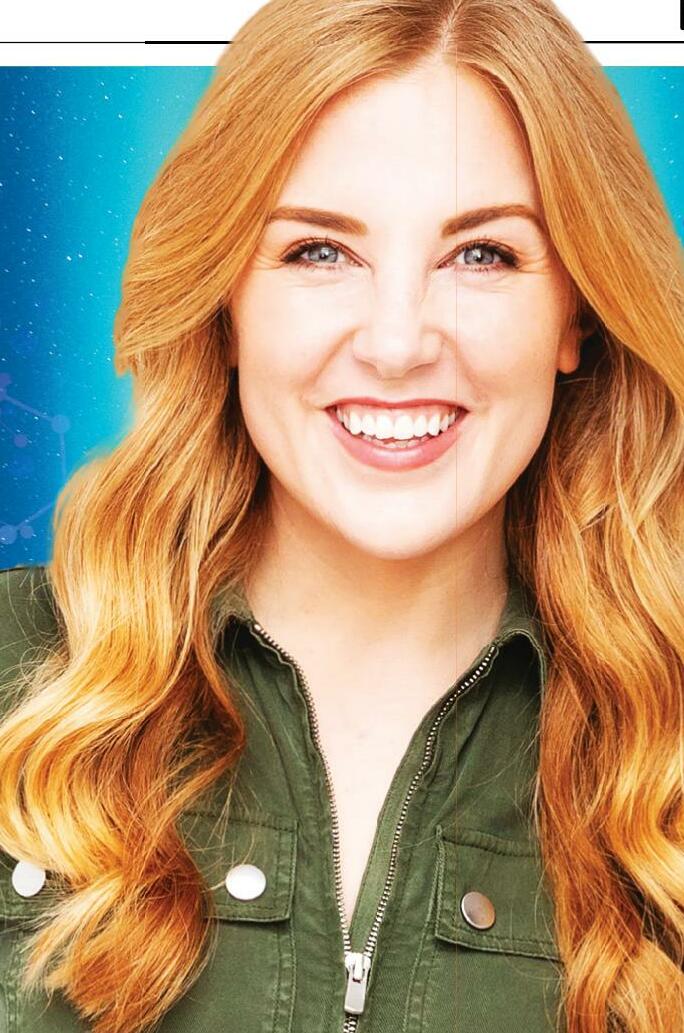
Maddie Moate has an appetite for learning more about the universe. Whether it’s finding out how bees make honey, how the pyramids in Egypt were built, or what’s beyond our solar system, she wants to know the answer. On her quest to discover how the world works, Moate aims to share her new knowledge with other people. From creating educational content on YouTube to presenting TV shows and writing books, she loves to teach young people about science.
Burning questions
When she was growing up, Moate always wanted to know more. She told The Week Junior Science+Nature, “I’m sure it was infuriating for my parents, but I was definitely that curious child, always asking why, always wanting to find out how things work.” Moate really enjoyed school, because it was a place where she could learn lots about the universe around her. Science, geography and history were among her favourite subjects. Moate says, “It’s fun to learn about the world and feel like you’re learning the sort of things an adventurer would have to know.”
The power of books
This story is from the Issue 67 edition of The Week Junior Science+Nature UK.
Start your 7-day Magzter GOLD free trial to access thousands of curated premium stories, and 9,000+ magazines and newspapers.
Already a subscriber ? Sign In
This story is from the Issue 67 edition of The Week Junior Science+Nature UK.
Start your 7-day Magzter GOLD free trial to access thousands of curated premium stories, and 9,000+ magazines and newspapers.
Already a subscriber? Sign In

Are cats smarter than dogs?
They're the UK's top pets, but which is more intelligent? You decide!

Could people turn Mars into another Earth?
Sven Bilén explores how humans might make a home on another world.

FUNNY BY NATURE
Claire Karwowski tracks down the wackiest wildlife that's cracking up the animal kingdom.

WEIRD SCIENCE
A round-up of the strangest science stories from around the world.

Guardians of the forest
Meet the incredible people protecting the Amazon rainforest.

The Mariana Trench
Dive in to find out how far down the ocean goes and what it's really like at the bottom.

Megan McCubbin
Meet the zoologist trying to change people's views of animals with a bad rep.

MAX POWER
From the second you wake up in the morning, your way of life is made possible thanks to the amazing power of electricity.

Your heart has a "brain"
New research by scientists at Sweden, and Columbia University, in the US, suggests that your heart could have its own \"mini brain\".

Ethiopian wolves could be furry pollinators
Sweet-toothed Ethiopian wolves have been seen lapping up nectar have been seen happing up nectar from red hot poker flowers.